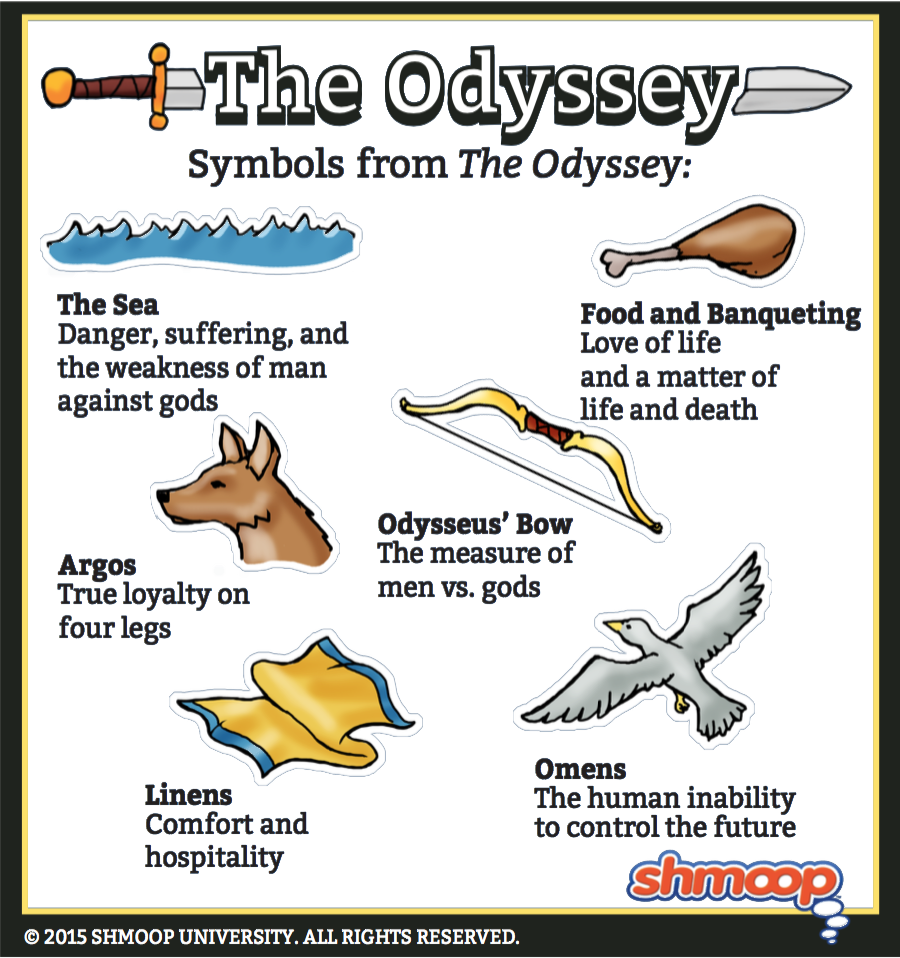Symbolism, Imagery, Allegory

(Click the character infographic to download.)
It's a good thing that we don't put much stock in augury anymore, or we'd be freaking out every time we saw a pigeon. In ancient Greece, anything could have meaning—but especially some things, like birds, entrails, and blind prophets.
In fact, one of the (many) ways we know the suitors are up to no good is that Eurymachos dismisses the whole idea of prophecy. "In any case we fear no one," he says, "nor do we care for any prophecy, which you, old sir, may tell us, which will not happen" (21). In contrast, Telemachos trusts prophecies and prophets. When Theoklymenos tells him that "not without a god's will did this bird fly past you on the right" (15.34), he's not 100% convinced—but he's definitely not impious.
The omens and prophecies that the Odyssey's characters constantly seem to encounter remind us that we're not operating in a world in which there's much room for free will. (Check out our "Theme" section on "Fate and Free Will" for more about that.) Everything—or almost everything—is preordained, and omens are just the gods' way of cluing us in. Kind of like "Next week in your life …"
